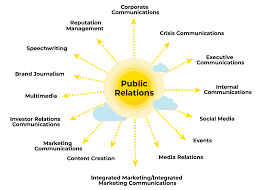Unlocking Success: The Ultimate Guide to Content Marketing Platforms
The Power of Content Marketing Platforms
In today’s digital age, content marketing has become a crucial strategy for businesses looking to engage with their target audience and drive growth. A content marketing platform is a powerful tool that can streamline and enhance your content creation, distribution, and analysis efforts.
Efficient Content Creation
A content marketing platform provides businesses with the tools they need to create high-quality and engaging content efficiently. From idea generation to content scheduling, these platforms offer features that help teams collaborate seamlessly and produce consistent messaging across various channels.
Targeted Distribution
Once your content is created, a content marketing platform enables you to distribute it effectively to reach your target audience. Whether through social media, email campaigns, or other channels, these platforms help you segment your audience and deliver personalised content that resonates with them.
Data-Driven Analysis
One of the key advantages of using a content marketing platform is the ability to track and analyse the performance of your content. These platforms provide valuable insights into metrics such as engagement rates, conversion rates, and audience demographics, allowing you to refine your strategy based on data-driven decisions.
Enhanced Collaboration
Content marketing platforms facilitate collaboration among team members by centralising all aspects of the content creation process in one place. From brainstorming ideas to approving final drafts, these platforms ensure that everyone is on the same page and working towards the same goals.
Conclusion
A well-implemented content marketing platform can transform your business’s approach to creating and distributing content. By leveraging the power of these platforms, businesses can enhance their brand visibility, engage with their audience more effectively, and ultimately drive business growth in today’s competitive digital landscape.
Top 5 FAQs About Choosing and Using a Content Marketing Platform for Your Business
- What is a content marketing platform?
- How can a content marketing platform benefit my business?
- What features should I look for in a content marketing platform?
- How does a content marketing platform help with content creation and distribution?
- What analytics and insights can I expect from a content marketing platform?
What is a content marketing platform?
A content marketing platform is a comprehensive tool that businesses utilise to streamline their content creation, distribution, and analysis processes. It serves as a centralised hub where teams can collaborate on generating ideas, creating compelling content, and scheduling its distribution across various channels. This platform enables businesses to target their audience effectively by segmenting them and delivering personalised content that resonates with their interests. Additionally, a content marketing platform provides valuable data-driven insights into the performance of content, such as engagement rates and audience demographics, allowing businesses to refine their strategies for optimal results.
How can a content marketing platform benefit my business?
A content marketing platform can benefit your business in numerous ways. By providing tools for efficient content creation, targeted distribution, and data-driven analysis, a content marketing platform helps you streamline your marketing efforts and reach your target audience effectively. With the ability to track performance metrics and refine your strategy based on insights, these platforms enable you to make informed decisions that drive engagement and conversion rates. Additionally, by enhancing collaboration among team members and centralising the content creation process, a content marketing platform ensures that your brand messaging remains consistent and impactful across various channels. Ultimately, leveraging a content marketing platform can help boost brand visibility, engage with your audience more meaningfully, and drive business growth in today’s competitive digital landscape.
What features should I look for in a content marketing platform?
When considering a content marketing platform, it is important to look for features that can streamline your content creation, distribution, and analysis processes. Key features to consider include robust content creation tools that facilitate collaboration among team members, seamless integration with various distribution channels for targeted outreach to your audience, and comprehensive analytics capabilities to track the performance of your content. Additionally, look for a platform that offers customisable templates, automation options, and scalability to meet your evolving business needs. By selecting a content marketing platform with these essential features, you can effectively enhance your content strategy and achieve your marketing goals.
How does a content marketing platform help with content creation and distribution?
A content marketing platform plays a vital role in streamlining and enhancing content creation and distribution processes. By providing a centralised hub for content creation, these platforms offer tools and features that facilitate efficient collaboration among team members, from brainstorming ideas to finalising content. Additionally, content marketing platforms enable businesses to schedule and distribute content across various channels, ensuring targeted delivery to the right audience segments. Through segmentation and personalised content delivery, these platforms help businesses engage with their target audience effectively and drive better results. Overall, a content marketing platform simplifies the content creation and distribution workflow, empowering businesses to create compelling content that resonates with their audience and achieves their marketing objectives.
What analytics and insights can I expect from a content marketing platform?
When utilising a content marketing platform, you can expect to gain valuable analytics and insights that provide a comprehensive view of your content performance. These platforms typically offer metrics such as engagement rates, click-through rates, conversion rates, audience demographics, and more. By analysing this data, you can understand how your content is resonating with your target audience, identify trends and patterns, and make informed decisions to optimise your content strategy. The insights provided by a content marketing platform empower you to refine your approach, enhance audience targeting, and ultimately drive better results for your business.












